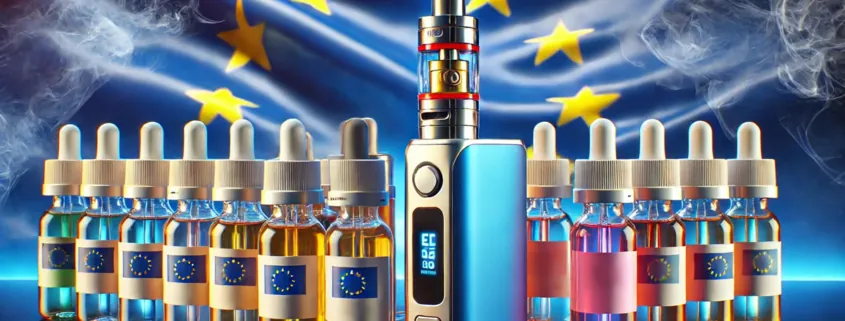EU Health Ministers to Discuss Controversial Vape Flavor Ban Proposal
European Union health ministers are set to discuss proposals that could lead to stricter regulations on vape flavors and other nicotine products at an upcoming meeting this Friday. The potential EU-wide flavor ban has sparked concern among nicotine consumers and advocacy groups, who argue that such measures could do more harm than good.
The Employment, Social Policy, Health and Consumer Affairs Council (EPSCO) will consider proposals from Latvia and Denmark, which call for an EU-wide flavor ban, restrictions on cross-border sales, and other recommendations. The Latvian document has garnered support from several member states, including Cyprus, Estonia, Ireland, Lithuania, Luxembourg, Malta, Portugal, Slovenia, and Spain. The Danish proposal is backed by a similar group of countries, with the addition of Finland, France, Germany, the Netherlands, and Poland.
Influential EU Countries Back Flavor Ban
The apparent support for flavor restrictions from influential EU powers France and Germany has heightened concerns among vaping advocates. While instituting an EU-wide flavor ban would be a lengthy process, the backing of these countries makes the threat of prohibitionist schemes more serious.
If health ministers reach a consensus on these proposals, the European Commission would be asked to introduce draft legislation, which would eventually be voted on by the Council and the European Parliament. National elections could also impact the level of support for a flavor ban in various countries.
Currently, seven EU countries have already passed laws prohibiting vape flavors: Denmark, Estonia, Finland, Hungary, Lithuania, the Netherlands, and Slovenia. Spain recently completed a public consultation on a proposed flavor ban, and Latvia is in the process of introducing flavor restrictions. However, no European country has implemented an outright vape ban.
Concerns Over Cross-Border Sales and Youth Targeting
Proponents of the flavor ban argue that individual country-level restrictions are ineffective due to the lack of a full ban on cross-border distance sales for tobacco and related products, including e-cigarettes, at the EU level. They claim that this allows consumers to circumvent national regulations by purchasing products from other member states.
The proposals also raise concerns about flavored nicotine products targeting children, using language that advocacy group Clearing the Air says mirrors that of the influential and EU-funded Association of European Cancer Leagues (ECL).
ETHRA Urges Evidence-Based Approach
In response to the proposals, the European Tobacco Harm Reduction Advocates (ETHRA) wrote to all EU health ministers, cautioning against the potential consequences of a flavor ban. The group argues that such measures are unlikely to protect young people and could do more harm than good overall, as a ban on flavorings would effectively amount to a de facto ban on all safer nicotine products.
ETHRA proposes a four-pronged strategy to reduce youth access to vaping and other nicotine products, which includes a lawful regulated market, age-secure retailing, marketing controls, and control of flavor descriptors. The group urges EU health ministers to approach the scheduled revisions of the primary EU tobacco directives with “evidence, deliberation, and meaningful consultation,” emphasizing the potential life-saving or lethal consequences of these directives for European citizens.
- HHC Vapes: What Are They & Are They Safe? - July 31, 2025
- Cannabis and Vape Shop Workers Rank Happiest in Nation - July 31, 2025
- Richmond, VA, Restricts New Vape & Tobacco Shop Locations - July 31, 2025









